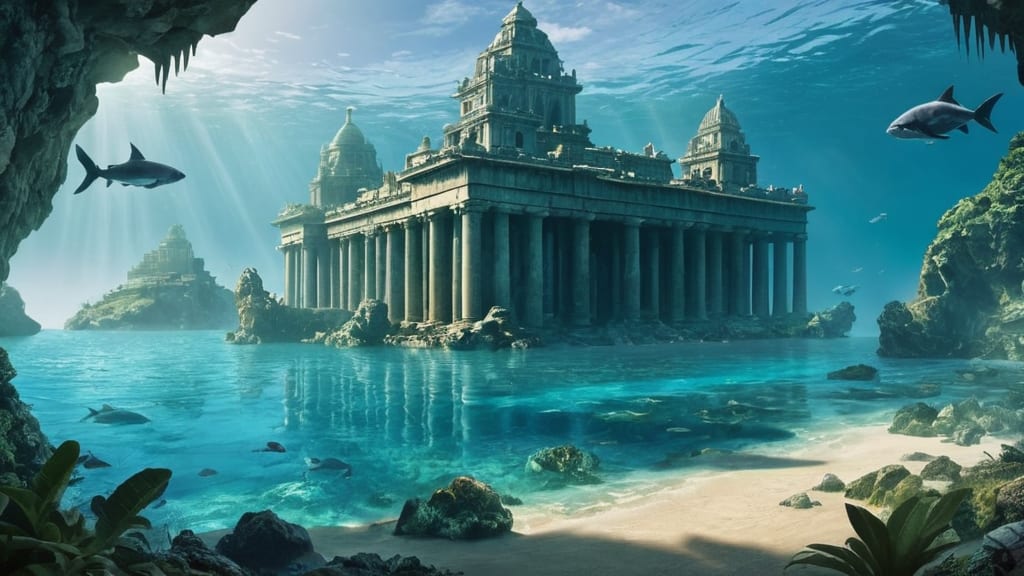
Ah, Atlantis—the legendary lost city that’s fascinated adventurers, conspiracy theorists, and scholars alike for over two millennia. The story of Atlantis blends grand myth with historical speculation, and while we may never get a definitive answer, here’s a breakdown of what’s myth, what’s theory, and what might actually have some truth to it.
🧙♂️ The Myth: Plato’s Atlantis
The only ancient source we have for Atlantis is Plato, who mentioned it in two dialogues—Timaeus and Critias, written around 360 BCE.
According to Plato:
- Atlantis was a vast island beyond the “Pillars of Hercules” (thought to be the Strait of Gibraltar).
- It was a technologically advanced civilization that existed about 9,000 years before his time.
- The Atlanteans became greedy and imperialistic, trying to conquer Europe and Africa.
- The gods punished them, and the entire island sank into the sea “in a single day and night of misfortune.”
Plato claimed the story came from Egyptian priests via the Athenian statesman Solon. But he also used Atlantis as an allegory—a warning against the dangers of hubris and moral decay.
🧠 Theories: What Could Atlantis Actually Have Been?
While Plato may have invented or embellished the story, some theories suggest there might be a kernel of truth behind the myth.
1. The Minoan Civilization (Crete and Santorini)
- Most credible historical theory.
- The Minoans were a powerful seafaring people with advanced art, architecture, and plumbing.
- Around 1600 BCE, a massive volcanic eruption on Santorini (Thera) devastated the region, causing tsunamis and possibly leading to the collapse of Minoan society.
- Some believe this cataclysm inspired Plato’s story.
2. Antarctica Hypothesis
- Some fringe theorists claim Atlantis was actually Antarctica before it froze over.
- Based on pseudoscience and misinterpretations of ancient maps like the Piri Reis map.
- Not supported by mainstream archaeology or geology.
3. Caribbean or Azores Islands
- Some believe Atlantis was in the Atlantic Ocean, possibly in the Caribbean or near the Azores (a group of islands west of Portugal).
- These theories point to submerged structures or terrain but lack solid evidence.
4. Atlantis as a Composite Myth
- Others argue that Plato blended real ancient catastrophes (like the Thera eruption) with utopian ideas to create a moral allegory, not a literal history.
- Similar to how we might invent dystopias or sci-fi worlds to reflect on our own society.
❓ So… What Really Happened?
While Atlantis is likely mythological, it may have been loosely inspired by:
- Real ancient civilizations (Minoans)
- Natural disasters (like earthquakes or volcanic eruptions)
- Cultural memory of cataclysms passed down orally for generations
There’s no physical or archaeological proof of a sunken continent or hyper-advanced lost civilization—but the story’s power lies in what it represents: the rise and fall of human ambition, and the mystery of what might lie beneath the sea.
Curious about the wildest Atlantis theories or want a breakdown of evidence from any specific one?